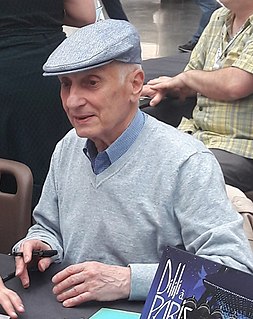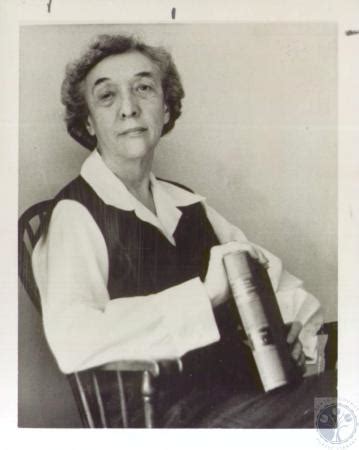A Quote by Thomas Paine
When I see throughout this book, called the Bible, a history of the grossest vices and a collection of the most paltry and contemptible tales and stories, I could not so dishonor my Creator by calling it by His name.
Related Quotes
I grew up with Bible stories, which are like fairy tales, because my father was a minister. We heard verses and prayers every day. I liked the gorier Bible stories. I did have a book of Chinese fairy tales. All the people except the elders looked like Italians. But we were not a family that had fiction books.
Ever heard of anyone executed for distributing copies of Grimm's fairy tales? Imagine people trying to smuggle copies of Hans Christian Andersen's works into China? The Bible, which has been called a mere collection of myths has suffered all of these fates: even today, copies of the Bible are banned and burned. There's something about this ancient book that threatens and frightens those in power.
I'm no longer religious, but the Bible fascinates me. Hardly anyone reads it anymore, but it's got everything: it's a book of poetry, it's a book of principle, it's a book of stories, and of myths and of epic tales, a book of histories and a book of fictions, of riddles, fables, parables and allegories.
My son's full real name is Duncan Zowie Haywood. As a toddler he was called by his second name Zowie. But it was such an identifiable name during the Seventies that if I called him loudly in public places, everyone would turn to stare, so I started calling him Joey to take the pressure off. It has the same sound and number of syllables as Zowie. And Joe stuck for most of his childhood. Now he has reverted to his real name, Duncan. Haywood was my father's name.
Why do you think the Bible has survived thousands of years of tumultuous history Why is it still here Is it because its stories are such compelling reading Of course not...but there is a reason. There is a reason Christian monks spend lifetimes attempting to decipher the Bible. There is a reason that Jewish mystics and Kabbalists pore over the Old Testament. And that reason Robert is that there exist powerful secrets hidden in the pages of this ancient book...a vast collection of untapped wisdom waiting to be unveiled.
For most of human history, 'literature,' both fiction and poetry, has been narrated, not written — heard, not read. So fairy tales, folk tales, stories from the oral tradition, are all of them the most vital connection we have with the imaginations of the ordinary men and women whose labor created our world.
When you lose the story that's running like a golden stream underneath all the other stories, you're left with the idea that the Bible is a collection of random-seeming stories about various Bible characters that we're supposed to learn lessons from - almost like an Aesop's Fables. And a book of rules that God wants us to keep so he will love us. And we lose the glorious truth of the Bible that we were loved before even the beginning of time. That God had a plan. That no matter what, he would never stop loving us.
I remember I was very taken with a book called DreamTigers by [Jorge Luis] Borges. He was at the University of Texas, Austin, and they collected some of his writings and put them in a little collection. It's called DreamTigers in English, but it doesn't exist in Spanish. It's a little sampler. But that collection in English is what struck me, because in there he has his poems, and I was a poet as well as a fiction writer.
William Shakespeare was the most remarkable storyteller that the world has ever known. Homer told of adventure and men at war, Sophocles and Tolstoy told of tragedies and of people in trouble. Terence and Mark Twain told cosmic stories, Dickens told melodramatic ones, Plutarch told histories and Hans Christian Andersen told fairy tales. But Shakespeare told every kind of story – comedy, tragedy, history, melodrama, adventure, love stories and fairy tales – and each of them so well that they have become immortal. In all the world of storytelling he has become the greatest name.



































